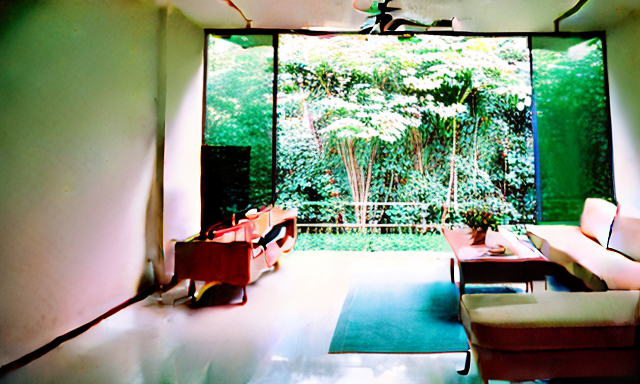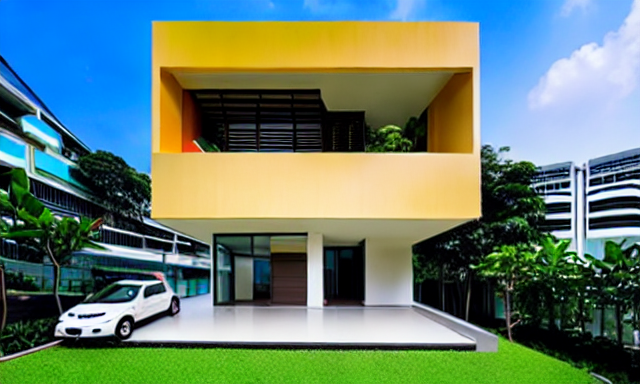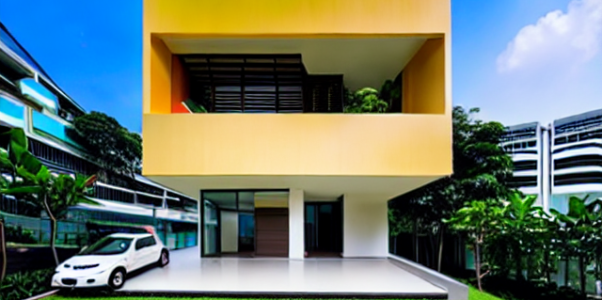Are you planning a sustainable home renovation? Are you looking for ways to create an eco-friendly living space that reduces your carbon footprint and saves you money on energy bills? If yes, then you’re in the right place! In this article, we’ll provide you with some tips on how to create a sustainable home renovation.
Renovating your home is an exciting project that requires careful planning and consideration. A sustainable home renovation involves making conscious choices and using environmentally friendly materials and practices. It is an opportunity to transform your living space into a sustainable and energy-efficient home that is good for you and the environment.
 Here are some tips on how to renovate your home sustainably:
Here are some tips on how to renovate your home sustainably:
Conduct a Sustainable Home Renovation Audit
Before you start renovating, consider conducting a sustainable home renovation audit to determine where you can make sustainable choices. A sustainable home renovation audit will help you identify areas where you can make improvements to reduce energy consumption, minimize waste, and conserve water. You can hire a professional to conduct an audit, or you can conduct a DIY audit using online resources.
Here’s a table checklist for Conducting a Sustainable Home Renovation Audit in Singapore:
| Area to Audit | Checklist |
|---|---|
| Energy Consumption | – Identify sources of energy consumption in the home |
| – Determine if appliances are energy-efficient | |
| – Identify areas where insulation can be improved | |
| – Determine if lighting is energy-efficient | |
| Water Conservation | – Check for leaks in pipes and fixtures |
| – Install water-efficient faucets and showerheads | |
| – Consider using a rainwater harvesting system | |
| Waste Reduction | – Identify ways to reduce waste in the home |
| – Determine if the home is properly recycling | |
| – Install a compost bin or use a composting service | |
| Indoor Air Quality | – Check for proper ventilation in the home |
| – Determine if air filters need to be replaced | |
| – Identify sources of indoor air pollution | |
| Sustainable Materials | – Consider using sustainable materials for renovation |
| – Determine if materials can be recycled at the end of life | |
| – Consider using reclaimed materials | |
| Transportation | – Identify ways to reduce transportation-related emissions |
| – Consider using public transportation or walking/biking more | |
| – Choose a location close to amenities to reduce travel time |
This checklist is by no means exhaustive, but it should give you a good starting point for conducting a sustainable home renovation audit in Singapore. By focusing on these key areas, you can identify areas where you can make improvements to reduce energy consumption, minimize waste, and conserve water.
Choose Sustainable Materials for Your Eco-Friendly Renovation

When choosing materials for your eco-friendly renovation, choose sustainable materials that are durable and environmentally friendly. Look for products that are made from recycled materials, or materials that can be recycled at the end of their life cycle. Opt for natural materials like bamboo, cork, and reclaimed wood for flooring, countertops, and cabinetry.
| Material | Description | Estimated Price Range (SGD) |
|---|---|---|
| Bamboo Flooring | Made from renewable bamboo, a sustainable and fast-growing plant | $6 – $12 per sq ft |
| Cork Flooring | Made from the bark of the cork oak tree, a renewable resource | $5 – $10 per sq ft |
| Reclaimed Wood | Salvaged from old buildings or structures, reducing waste | $8 – $20 per sq ft |
| Recycled Glass Countertops | Made from recycled glass and non-toxic resins | $130 – $200 per sq ft |
| Recycled Metal Roofing | Made from recycled metal, reducing waste and conserving energy | $6 – $10 per sq ft |
| Wool Carpet | Made from natural, biodegradable wool fibers | $4 – $6 per sq ft |
| Low-VOC Paint | Contains fewer harmful volatile organic compounds | $30 – $60 per gallon |
| LED Lighting | Energy-efficient and long-lasting lighting option | $10 – $30 per bulb |
This is just a sample list and prices may vary depending on the supplier and other factors. By choosing sustainable materials for your renovation, you can help reduce waste, conserve resources, and create a healthier indoor environment.
Choose Energy-Efficient Appliances
In Singapore, the National Environment Agency (NEA) has a Mandatory Energy Labelling Scheme (MELS) that requires certain appliances to be labeled with their energy efficiency rating. Look for appliances with a higher energy efficiency rating under MELS to reduce your energy consumption and save money on your electricity bills. The higher the rating, the more energy-efficient the appliance is.
You can also look for appliances with the Energy Efficiency Labeling Scheme (EELS), a voluntary labeling scheme that covers a wider range of household appliances. This scheme provides information on the energy consumption of appliances and helps consumers make informed choices when purchasing new appliances.
By choosing energy-efficient appliances, you can not only save money but also reduce your environmental impact and contribute to a more sustainable future.
Install Solar Panels to Create a Sustainable Home
Solar panels are a great way to generate renewable energy and reduce your carbon footprint. In Singapore, solar panel systems are becoming more common as the government and private organizations are actively promoting the adoption of renewable energy.
According to the Energy Market Authority (EMA) in Singapore, the efficiency of solar panels in Singapore ranges from 14-20%, depending on the quality and type of panel used. The cost of installing a solar panel system in Singapore can vary widely depending on factors such as the size of the system and the complexity of the installation, but on average, the cost per watt ranges from SGD $3.50 to SGD $5.50.
The government of Singapore offers incentives to homeowners who install solar panels. Under the Enhanced Central Provident Fund (CPF) Housing Grant for households with income up to SGD $9,000, you can receive up to SGD $3,000 in subsidies for solar panels. The government also offers the SolarNova program, which provides financing and technical support for solar panel installations.
By installing solar panels, you can reduce your energy bills and make a positive impact on the environment. With the right incentives and support from the government, solar panels can be an affordable and effective way to create a sustainable home in Singapore.
Use Low-VOC Paints for an Eco-Friendly Renovation
Traditional paints can release harmful volatile organic compounds (VOCs) into the air, which can be harmful to your health and the environment. Opt for low-VOC or zero-VOC paints instead, which are safer for your health and the environment.
Here are some benefits of using low-VOC paints:
- Improved Air Quality: Low-VOC paints contain fewer harmful chemicals that can cause indoor air pollution and negatively impact air quality. This is particularly important for those with respiratory issues or allergies.
- Less Harmful to the Environment: Low-VOC paints are also more environmentally friendly as they release fewer volatile organic compounds (VOCs) into the atmosphere, reducing the negative impact on the environment.
- Reduced Health Risks: Low-VOC paints have a lower risk of causing health problems in those who come into contact with them, such as painters and other workers who may be exposed to high levels of VOCs.
- Faster Drying Time: Low-VOC paints have a faster drying time, which can be beneficial when painting a large area or when time is of the essence.
- Long-Lasting: Low-VOC paints can last just as long as traditional paint, and may even have better color retention and resistance to fading, making them a cost-effective and long-lasting option.
- Variety of Colors: Low-VOC paints are available in a wide range of colors and finishes, making it easy to find a paint that suits your aesthetic preferences.
Overall, low-VOC paints are a safer, more environmentally friendly, and healthier option compared to traditional paint, making them a popular choice for eco-friendly and sustainable home renovations.
Insulate Your Home for a Sustainable Home Renovation
Insulating your home is a crucial step in creating a sustainable living space. A well-insulated home can help keep the interior comfortable all year round, reduce energy consumption, and improve the overall energy efficiency of your home.
In Singapore, where temperatures can reach up to 32°C, proper insulation can help keep the interior of your home cool and comfortable, reducing the need for air conditioning and energy consumption. On the other hand, insulation can also help keep your home warm during the winter months when the temperature can drop to as low as 23°C. This can help reduce the need for heating and lower your energy bills.
In addition to providing thermal benefits, insulation can also help reduce noise pollution. This is especially important in urban areas where noise from traffic, construction, and other sources can be a significant issue. Insulating your home can help reduce the amount of external noise that enters your home, providing a quieter and more peaceful living environment.
Moreover, the heat and humidity in Singapore can lead to mold growth, which can cause health issues for occupants of the home. Insulating your home can help prevent mold growth by reducing the amount of moisture that enters your home. This can help ensure that the air quality in your home is healthy and safe.
Proper insulation can also prevent the infiltration of pollutants such as dust, smoke, and chemicals from external sources into your home, improving the air quality and reducing health risks.
Overall, insulating your home is an essential step in creating a sustainable living space in Singapore. It can help regulate the temperature, reduce energy consumption, improve air quality, and reduce noise pollution, making it a smart investment for any eco-friendly renovation project.
Conclusion: Creating a Sustainable Home Renovation
A sustainable home renovation involves making conscious choices and using environmentally friendly materials and practices. By conducting a sustainable home renovation audit, choosing sustainable materials, opting for energy-efficient appliances, installing solar panels, using low-VOC paints, and insulating your home, you can create a sustainable and energy-efficient home that reduces your carbon footprint and saves you money in the long run.
In summary, an eco-friendly renovation is not only good for the environment, but it’s also good for your wallet. By following these tips for a sustainable home renovation, you can create a beautiful, sustainable home that is good for you and the environment.


